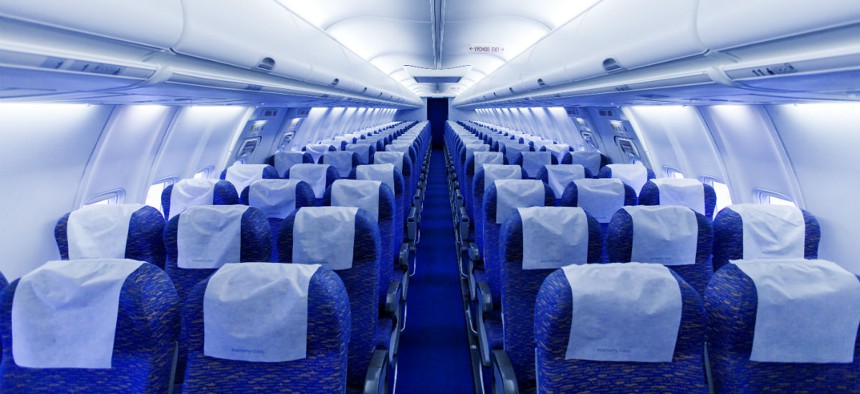
StudioSmart / Shutterstock.com
Head Air Marshal to Congress: We've Still Got This
The "last line of defense" in the sky is persevering despite several challenges.
The director of the Federal Air Marshal Service told Congress on Thursday that his department is prepared for evolving terror threats despite office closures and employee misconduct.
Roderick Allison appeared before a House Homeland Security subpanel to field concerns that the service is no longer a capable component of U.S. security strategy. "What I see is a viable counterterrorism force that supports the counterterrorism efforts of this government. We may be smaller and leaner, and budget dollars are tight, but we have to do our part," he said.
The last congressional hearing on the service was three years ago, when the same subcommittee looked into allegations of discrimination and retaliation by supervisors against marshals—a culture described in a Homeland Security Department report as "a great deal of tension, mistrust, and dislike." Allison responded to questions from lawmakers about the events of 2012, saying that there was "no evidence of widespread discrimination."
A recent controversy occurred in March, when an air marshal left his loaded handgun in a bathroom stall at Newark Liberty International Airport in New Jersey, and boarded his assigned flight without the weapon. "You have breaches of protocol," Allison said of the incident. "This young man, unfortunately, made a mistake, and it's probably going to cost him."
There were broader issues on the table, too. Allison informed lawmakers that six field offices will be closed in the next year, with four of them already shuttered. But these personnel are being reassigned to "our most critical" offices to service higher-risk airports and flights. "These closures will not adversely impact our ability to maintain coverage," he said.
But staffing woes remain. The last class of marshals—about 400 to 500, according to Allison— graduated in 2011, and the service has not been able to afford to field another class. Although its annual budget is $800 million, Allison said that any extra money has gone toward addressing attrition. Nevertheless, a new class is being planned for the near future. "The process is still going on," he said. "We are going to make another run for next year."
"Not being able to hire has a detrimental effect on the workforce. There's a sort of feeling of 'dying on the vine.'" Allison said. "The workforce is getting older. A lot of people that we hired in the beginning after 9/11, they're going to be walking out the door in 2020, 2021 … That is the No. 1 issue I would put on my wish list in big, bold letters."
Allison said the majority of personnel are flying marshals or direct support. The service is facing a 6 percent attrition rate this year.
Lawmakers inquired about the service's tactical readiness for evolving terror threats. Allison said mission planning is informed by passenger travel patterns, assessed passenger risk, and consideration for locations with known vulnerabilities.
In reply to a question about the seating locations of marshals—particularly the perception that they sit in first-class—Allison said that he "can't elaborate in an open hearing about our tactical seating. … As a matter of practice, those things are managed to a very high degree. I look forward to having a private conversation with you in a closed setting, and I will give you the full plethora of information with regard to where we sit and why we sit there."
"Wherever that incident is, we're going to respond to it" he added.
This story was updated with new information throughout.
(Image via StudioSmart / Shutterstock.com)






